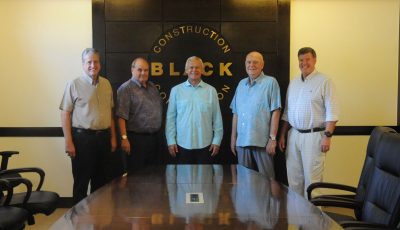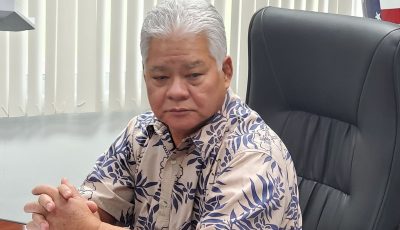Kilili: Workforce Act protects local businesses
Editor’s Note: This is the third in a four-part series by Delegate Gregorio Kilili C. Sablan, explaining aspects of the Northern Mariana Islands U.S. Workforce Act, which he introduced on Jan. 19. A hearing on the U.S. Workforce Act was held on Feb. 6 by the Senate Energy and Natural Resources Committee. To watch the hearing go to the https://www.youtube.com/watch?v=bhRUsvIeaHs.
Last time, we talked about extending the transitional worker program for 10 years and lifting next year’s permit cap from 4,999 to 13,000.
Those are two big-ticket items in the U.S. Workforce Act that our business community asked me to negotiate for them in Congress.
But there are deeper problems local businesses face with the CW program, which I was also asked to solve.
Making the process more efficient
One issue, as a business owner wrote me, is the “expensive, inefficient and time-consuming” annual renewal process. Renewal applications have to be submitted six months ahead of expiration and can take six months or more to be processed.
My Workforce Act addresses this long wait and the uncertainty that businesses face by requiring the Department of Homeland Security to make a decision on permit applications within 60 days. The current open-ended adjudication period is unfair to businesses and their workers alike.
The Act also frees local businesses, who depend on legacy foreign workers, from the never-ending and costly annual renewal requirements. I will talk about that change in the next installment.
Weed out the ‘bad actors’
Local businesses that try to live by the law and treat employees well are also the victims of “bad actors.” I am talking about operations that scoop up hundreds of CW permits and then sell them in places where people are desperate for the chance to come to America.
This is human trafficking, plain and simple. It has to be stopped. But it also hurts our legitimate local businesses, who cannot get the CW permits they need. And it soils the good name of the Marianas when workers brought here are left without a job or never get paid.
My Workforce Act tackles these problems, too. Anyone who employs a CW worker will have to present evidence to federal agents—every three months—that foreign workers are being paid and that all the other terms and conditions of employment are being met. No “ghost permits.”
And employers who are in breach of federal or Commonwealth labor laws—or not using their permits—will have them revoked, so legitimate businesses can have them instead.
Let me hear what you think
I am writing this series of articles, so you, the people I work for, can have a deeper understanding of the legislation I wrote. If you have any questions about how my U.S. Workforce Act helps local workers and local businesses, please, let me know. My email is kilili@mail.house.gov.
Next time, I will write about what the Act does for those who came to work and have lived here for so many years that they are now part of our community. The Northern Mariana Islands U.S. Workforce Act helps them, too.”



























